
How to use "prefer" in English ("Prefer...to" vs. "Prefer...than" a common mistake)
Doug: "I very much prefer reading books to watching TV." As you can see, when you want to compare two objects OR your general preference between two activities (remember: Use a gerund!), use "prefer.to." In casual settings, you can also say you prefer something over something else. For example: "I prefer steak over porkchops" or "He prefers.
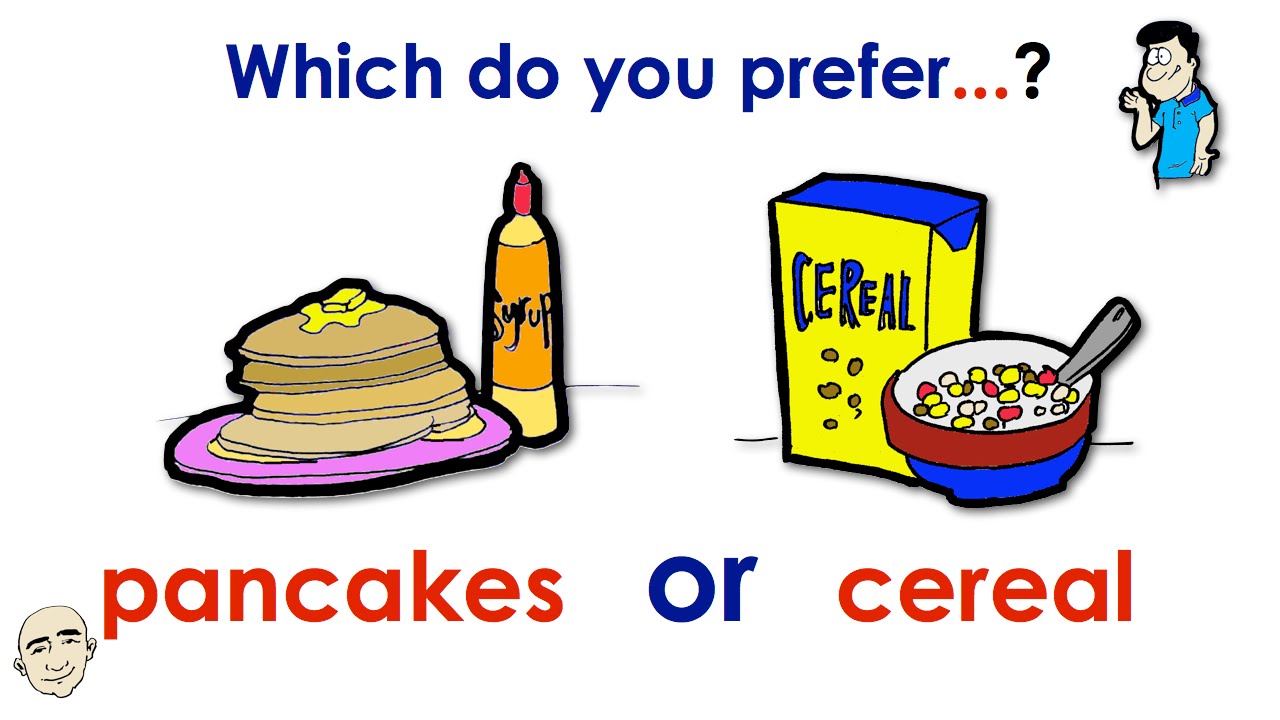
Prefer TO DO sth / Prefer DOING something FeasiBLE ENGLISH
from English Grammar Today Expressing preference We use prefer to say we like one thing or activity more than another. We can use a prepositional phrase with to when we compare two things or actions: I prefer tea to coffee. We prefer going by ferry to flying. We don't use than after prefer: She prefers books to magazines.

Using Prefer, Would rather, Had better English Study Here
Your suggestion isn't bad, but it does sound a bit unnatural. "prefer. rather than" is sort of strange considering that "rather" itself often means "prefer". I'd rather study in a coffee shop than study in the library. This usually expresses a preference for a specific event though rather than your general preferences.

Would Like Would Prefer Would Rather
love. start. prefer. hate. begin. continue. When they are followed by another verb we can use to or the gerund ( -ing ): I prefer to travel by car. - or - I prefer travelling by car. Anna loves to dance. - or - Anna loves dancing.
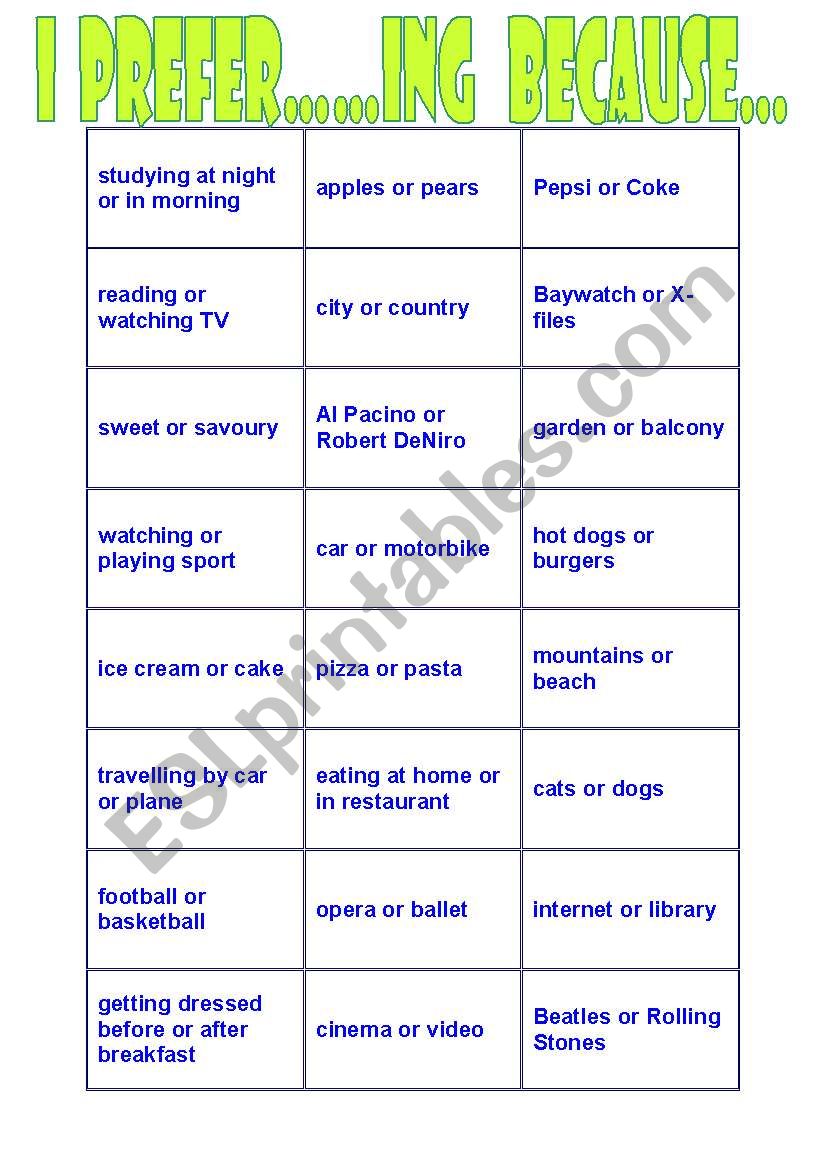
I PreferIng Because....doc ESL worksheet by mabududu
Prefer and would rather can be used interchangeably. As you indicate, Omar, when we are talking about general preferences, prefer is followed by verb-ing, thus: I prefer listening to music to.

Like vs Prefer. Prefer to. Prefer + ing. Prefer + rather than. in hindi. YouTube
"Prefer to" vs "prefer than" Ask Question Asked 10 years, 4 months ago Modified 5 years, 6 months ago Viewed 314k times 19 I am confused as to when to use "prefer to" and "prefer than". For example, we write: I prefer coffee to tea. So why can't we use than instead of to? Also, can someone give me an example of a sentence where we use prefer than?

Would Rather, Prefer or Had Better? Learn english, English grammar, Learn english grammar
Here are the rules for using would rather , would prefer and prefer correctly. The first table looks at how we can express specific preference; the second shows us how to express general preference.
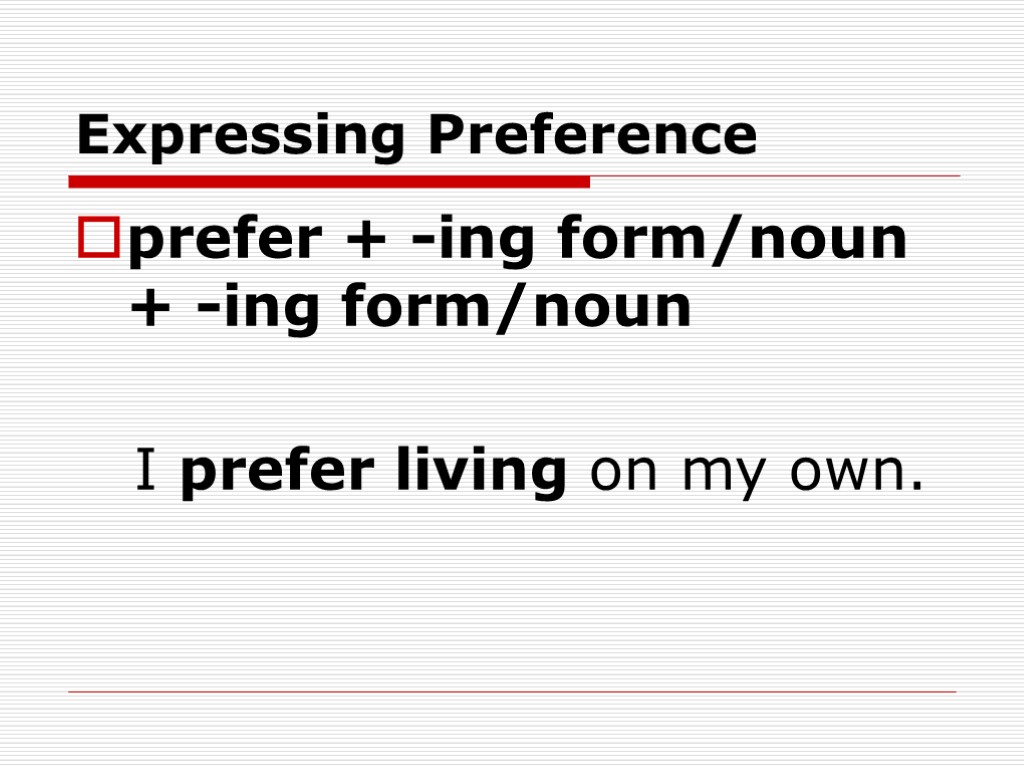
Countable and Uncountable Nouns. Countable Nouns Can be
6 Just saw this: "prefer ~ing" / "prefer to infinitive" and I am wondering if there are any differences between "prefer doing" and "prefer to do". I have read a book about grammar that says there is a subtle difference between them, and I would like to confirm this concept. Am I right about the following? gerund: refers to a habit e.g.:
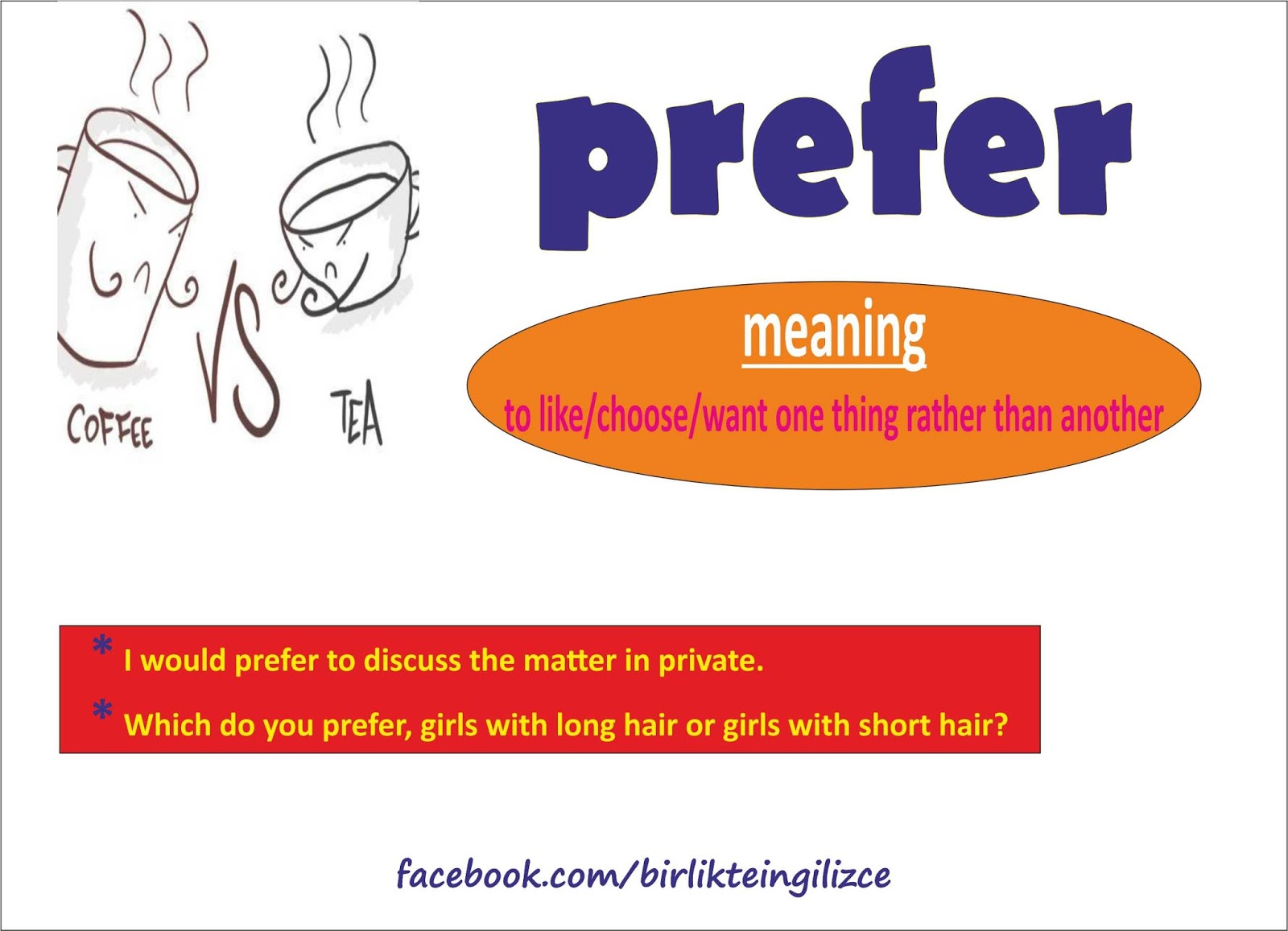
İngilizce Deyimler ve İfadeler 34 Evire Çevire İngilizce
Preference: prefer -ing to -ing. You prefer doing X to doing Y, you compare two things - maybe your general likes and interests. I prefer cycling to running. I prefer teaching English to learning it.

LOVE, LIKE, ENJOY, HATE, PREFER + VE… English ESL worksheets pdf & doc
2020年1月4日 最も役に立った回答 英語 (アメリカ) Prefer + to is usually used when comparing two things and can be used with nouns as well as verbs Example: Nouns- I prefer to eat cookies instead of cakes. Verbs- I prefer to swim rather than jog. Prefer + ing verb is the present continuous tense and it is used to describe things you like to do regularly.

Презентация "Grammar" скачать бесплатно
As you can see, 'prefer' can be followed by three types of words - nouns, -ing forms and to-infinitives. You can prefer A to B or you can prefer A instead of B. Note that if you prefer ice-creams to chocolates, you like ice-creams more. Study the examples: I prefer bikes to cars. I prefer reading to writing. I prefer walking instead of.

Презентация на тему "ing form or infinitive Part II. Contents 1.Prefer, would rather, had
Grammar Point want / like / love / hate / think want / like / love / hate / think. These verbs belong to a group known as stative verbs because they describe a state rather than an action (although think can describe either an action or a state). Stative verbs are not usually used in the progressive tenses. However, it is becoming more common for some stative verbs to be used with progressive.

Curso de inglés gratis "Preferir" en inglés prefer, would rather, would prefer English Grammar
1 Answer Sorted by: 3 Well, aside from these specific sentences you make a number of other English mistakes that a native speaker would not make. For example, the expression is "day to day" and not "day a day". Otherwise.

ENJOY, LOVE, LIKE, HATE, PREFER + I… English ESL worksheets pdf & doc
Unit 59 of English Grammar in Use by Murphy clearly gives both forms as standard. [excerpt] You can use 'prefer to (do)' or 'prefer -ing' to say what you prefer in general. I don't like cities. I prefer to live in the country. or I prefer living in the country. I prefer driving to travelling by train. I prefer to drive than than travel by train.

Using Prefer and Example Sentences Grammar Simple The Ing, English Writing Skills, English
Prefer and can't bear can also take a gerund or a to -infinitive: I prefer walking to taking the bus. (I like walking better than taking the bus.) If you prefer to walk, it will take you 30 minutes to school. (If you want to walk, it will take you 30 minutes to school.) I can't bear seeing people being humiliated.
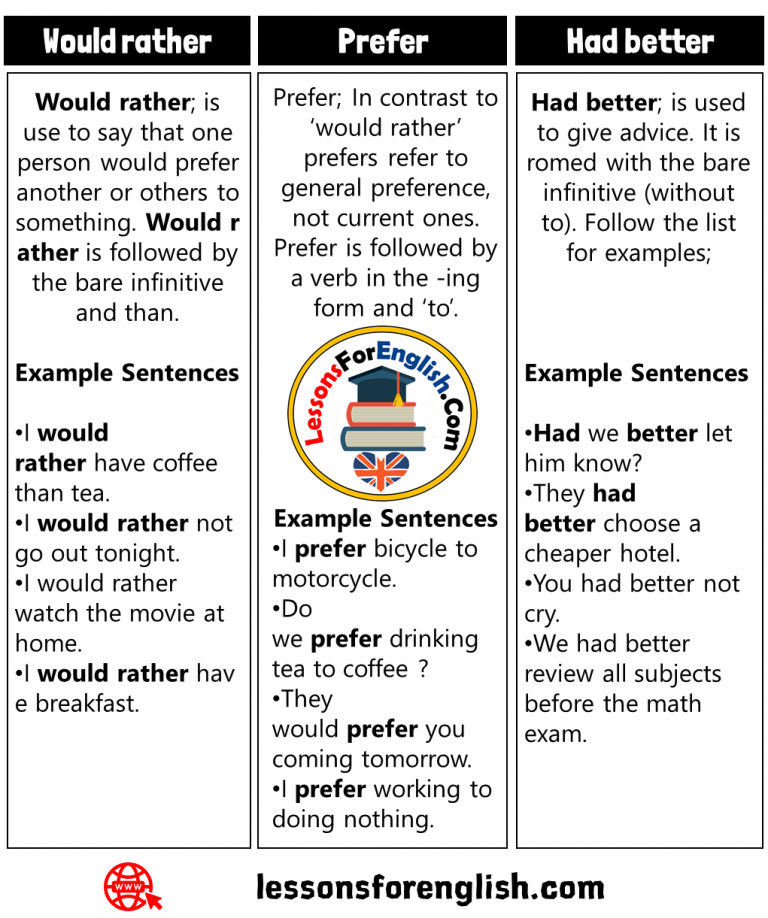
How to Use Had Better, Prefer and Would Rather, Example Sentences Lessons For English
would prefer + infinitive + rather than + base form of verb. = to want to do one thing more than another thing. (in the present or future) (" rather than " separates the 2 activities that we are comparing. The activity before " rather than " is the one we want to do the most.)